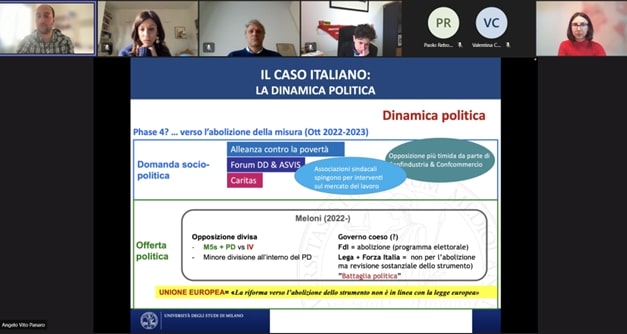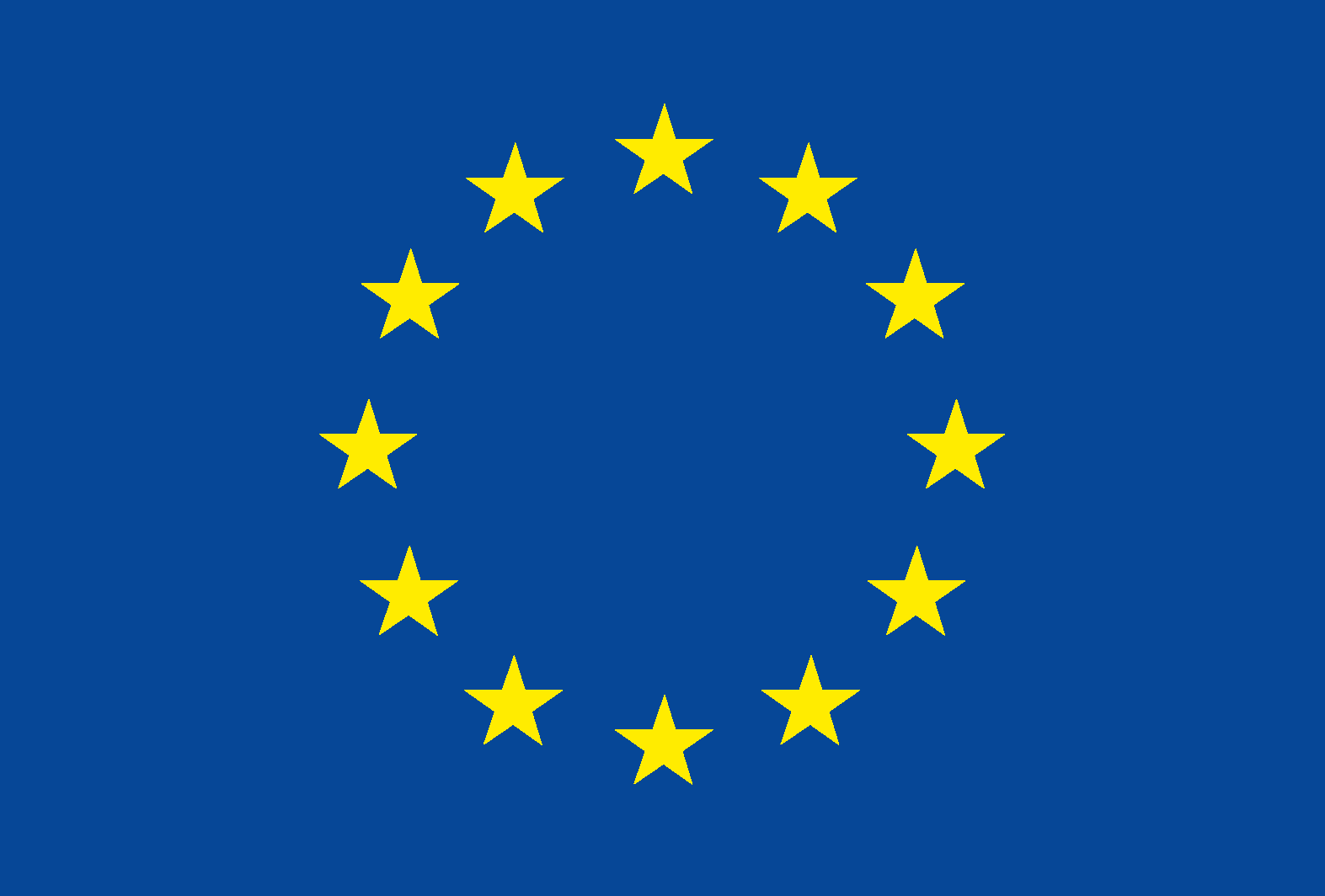The Italian focus forum organized by Angelo Vito Panaro, Viola Shahini and Matteo Jessoula at University of Milan took place on 29 March 2023 online. The agenda contained presentations by the EUROSHIP researchers as well as comments and discussions by all participants.
EU Recommendation on Minimum Income and the Italian case
The first presentation aimed at answering the following questions: What factors were behind the increased relevance of minimum income initiatives at the supranational political arena since the end of the Lisbon strategy? Despite increased relevance, why was the formulation of a directive not feasible, while only a Recommendation was issued by the Commission in September 2022? What factors explain the policy trajectory of MIS in Italy during the pandemic?
After a brief introduction of the EUROSHIP project and the main contributions developed in the last years (EUROSHIP Working Paper Series and EUROSHIP Policy Briefs), the presentation continued with a reconstruction of the policy development on minimum income at the EU level and an overview of the actors’ position in this field since the launch of the EUROPE 2020 strategy. Then, the focus of the presentation shifted to the content of the 2023 Recommendation and the political dynamics that led to the adoption of the Recommendation. The second part of the presentation was instead centered on the Italian case, and more specifically on the policy development and political dynamics of MIS in Italy during the last three years.
Many comments were raised by the participants and there was a lively discussion on the content of the EU Recommendation. In particular, Giordana Pallone (Head of Welfare for the CGIL) and Valentina Cappelletti (Head of CGIL Lombardy) elucidated on the role of the CGIL in the Italian policy making with regard to the 2021 and 2022 changes on the RdC. The participants also shed lights on the consequences concerning the most recent changes to the RdC adopted by the current Italian government.

EU Directive on minimum wage: trajectory and political dynamics
The second presentation was focused on the EU Directive on minimum wage. The first part of the presentation was primarily centered around the policy trajectory while the second part focused on actors’ constellation and political dynamics behind the adoption of the Directive.
After the presentation, a lively discussion emerged on the content and the assessment of the Directive (whether it constitutes a real step forward in the field at the EU-level). Valentina Cappelletti, Giordana Pallone, and Matteo Jessoula in particular highlighted major problems in the applicability of the directive for the Italian context.

